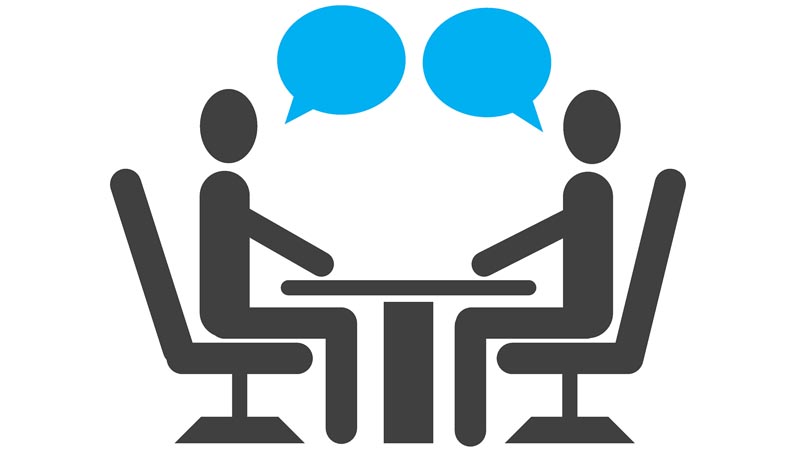How to take an interview

Start slow, safe and personal
I usually begin with a question that focuses on the person and not the topic at hand, such as: "Where did you grow up," or "what was your first job out of college?" First off, you relax your subject and you humanize the interaction. This relaxes the atmosphere, starts the conversation on safe ground, and let's you get a sense of the where your subject is coming from. Second, you sometimes get a surprisingly good story.
Coax, don't hammer
The "shock jock" interviewer may get daytime TV audiences to cheer and jeer, but chances are your audience is too sophisticated and businesslike for such low-rent tactics. I prefer interviews who have the up-close, but soft style that coaxes revealing, newsworthy, useful answers. She coaxes the most revealing content out of her subjects, by adopting a very personal rapport and asking questions, in a "c'mon, you can tell me" style. People tell her the most amazing stuff. I'll bet a few of them later wonder whatever possessed them to reveal certain matters on national television.
Make some questions open ended
All interviews require you to ask specific questions that get answered with narrow data points. "What was your last job title?" But, in my experience, the most interesting responses I get come from open-ended questions, such as, "What is your vision for your organization five years from today?" or one of my current favorites, "Do you worry about any unintended consequences from what you are trying to accomplish?"
Ask what you don't know
There's a lawyer's tip that advises you to only ask witnesses questions that you already know the answers to. I do the opposite. I ask questions on issues where I am clueless what the answer will be. Lawyers hate surprises. As a journalist--or reader--I love them. Surprises mean I have something that has not been previously reported.
Let the interviewees wander a bit
Interviewers, in my view, try too hard to control the conversation, when the person in the other seat is the one who can produce the news.
I recently watched Oprah Winfrey interview Sean Penn in a Haitian refugee camp on television. Penn was in an uncharacteristically reflective mood. He obviously wanted to talk about the recent dissolution of his marriage but Winfrey changed the subject on him. Then he wanted to talk about the suffering of children, but she changed subjects on him again. After that Penn seemed bored and detached. I don't blame him.
—Forbes




